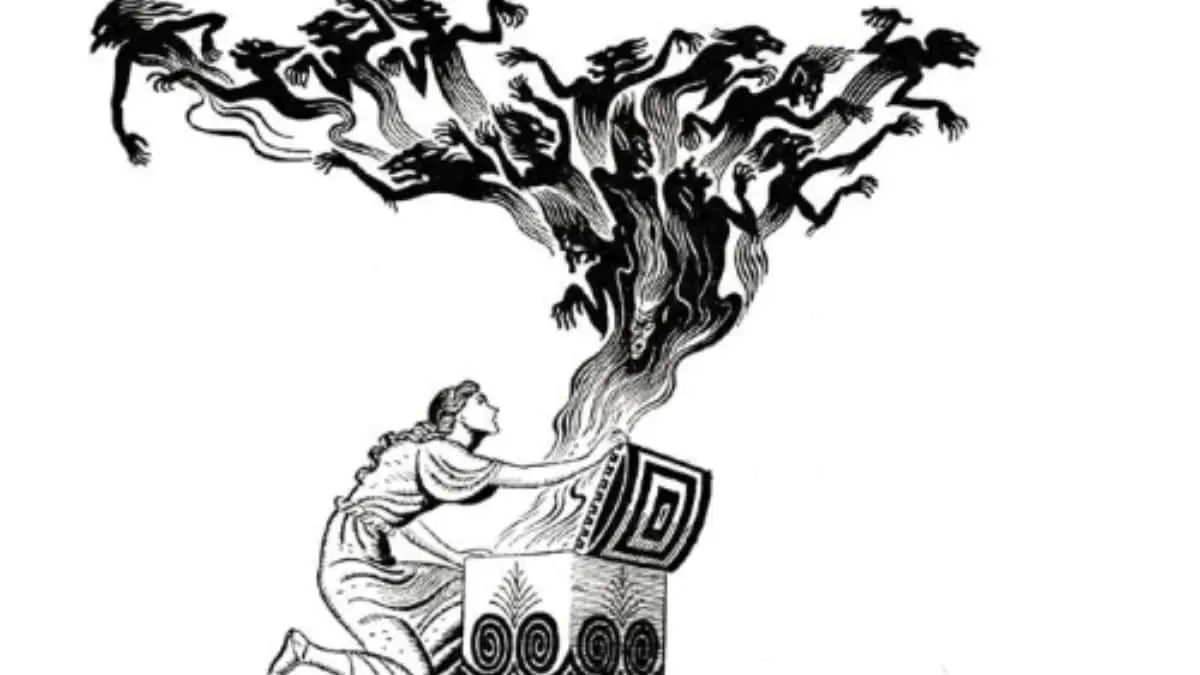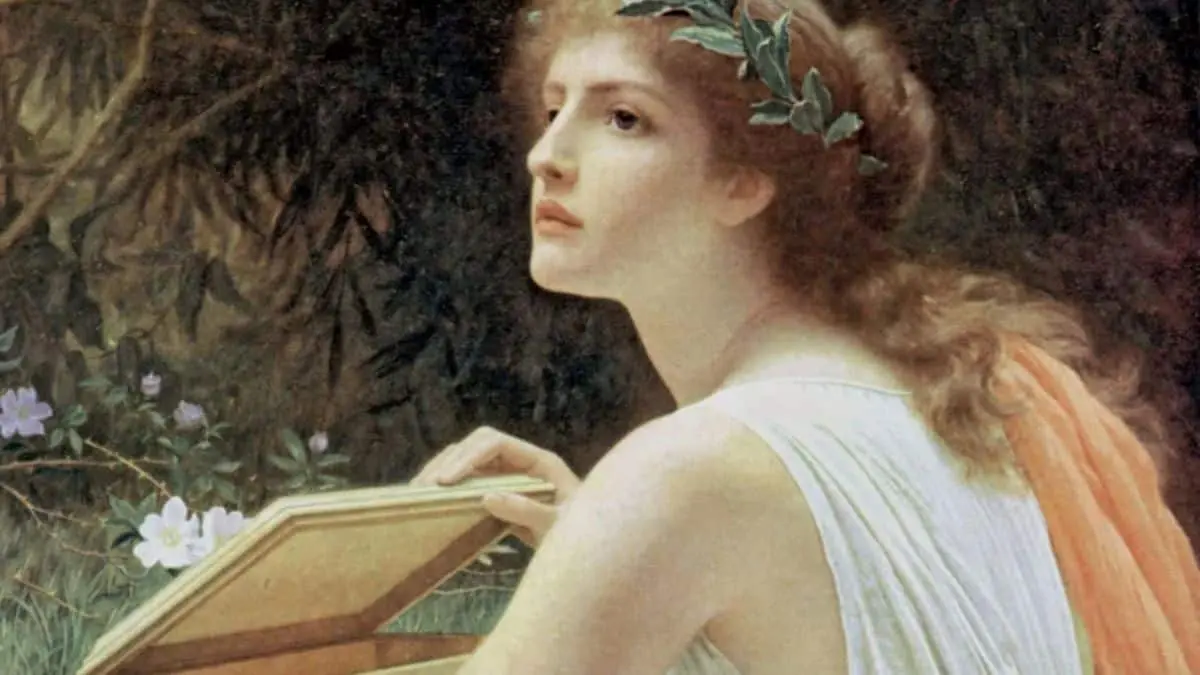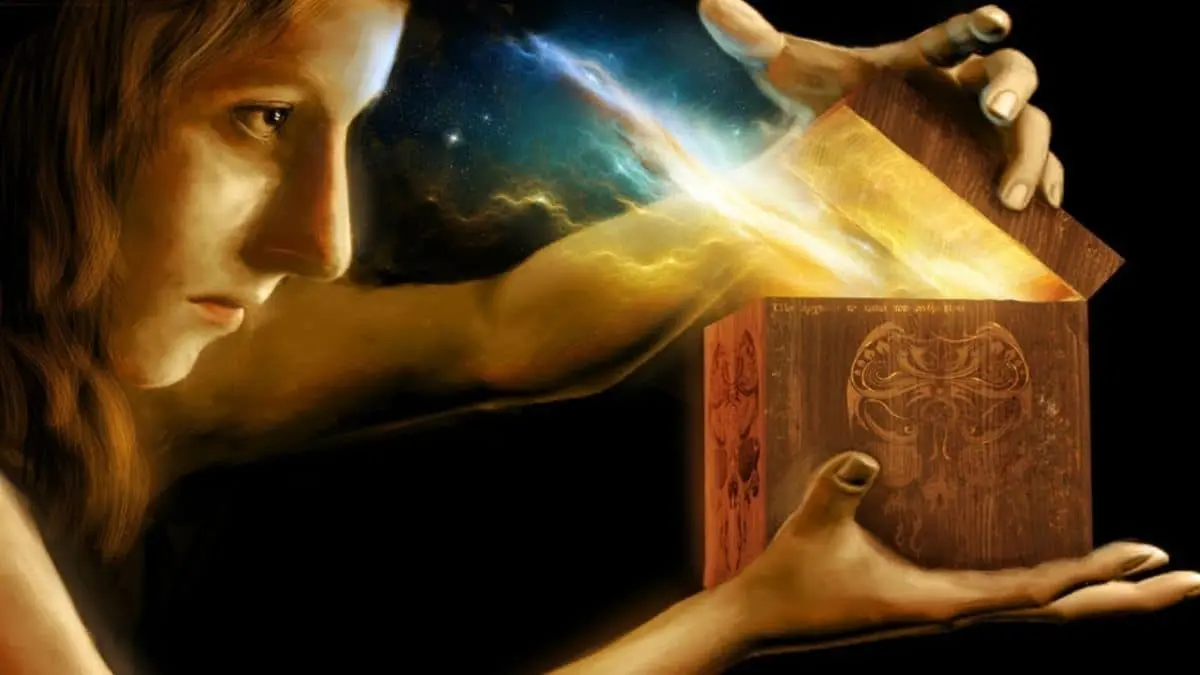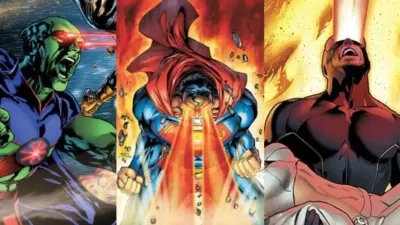- But who was Pandora, and what was inside Pandora’s box?
- The name “Pandora” itself is laden with meaning.
- However, what truly sets Pandora apart is her insatiable curiosity.
- This ominous warning, however, only fueled Pandora’s curiosity.
- The origin of Pandora’s Box can be traced back to the gods of Olympus.
- Pandora’s curiosity proved stronger than her will to heed the warning of the gods.
Imagine a world where gods ruled from the heavens and humans dwelled in an existence shaped by divine whims. In this mythic landscape, we meet Pandora, a character whose story captures the essence of human nature and the enduring struggle between curiosity and restraint. Pandora, whose name itself hints at a mystery waiting to be unveiled, takes center stage in a narrative that touches the very core of our existence. But who was Pandora, and what was inside Pandora’s box? How did this myth come to be, and why does it continue to captivate our imaginations today? Join us on a journey through the annals of Greek mythology and the depths of Pandora’s Box as we unravel the layers of this extraordinary tale.
Pandora | Myth and Pandora’s Box
The Myth of Pandora
In Greek mythology, Pandora is a character whose origin story holds a unique place. She is not born of mortal parents or divine unions like many other figures in Greek myths. Instead, Pandora’s existence is the result of divine will and intrigue, a story that carries profound insights into the nature of humanity.

The Creation of Pandora
The tale of Pandora begins with her creation by the gods, particularly by the chief of the Olympian gods, Zeus. According to the myth, the gods fashioned Pandora from clay, bestowing upon her exquisite beauty, intelligence, and a captivating allure. Each deity contributed to her creation, making her a collective masterpiece.
Pandora’s Name and Curiosity
The name “Pandora” itself is laden with meaning. It can be translated to “all-gifted” or “all-giving.” This name choice sets the stage for the central theme of the myth – the bestowal of gifts and the consequences that arise from them. Pandora’s beauty was a gift from Aphrodite, her intelligence from Athena, and her various other qualities from different gods.
However, what truly sets Pandora apart is her insatiable curiosity. As part of her creation, Zeus endowed her with a curious nature, a trait that would play a pivotal role in the myth’s unfolding. Zeus then presented Pandora as a gift to Epimetheus, the brother of Prometheus, the Titan known for stealing fire from the gods and gifting it to humanity.
Pandora’s Arrival and the Mysterious Box
When Pandora arrived at Epimetheus’ home, she brought with her a mysterious jar or box, often referred to as “Pandora’s Box” (though some versions of the myth describe it as a jar). Along with the box came a dire warning from the gods, especially from Zeus: never open it under any circumstances.
This ominous warning, however, only fueled Pandora’s curiosity. She couldn’t resist the temptation to uncover the secrets hidden within the box. It was this pivotal moment, when Pandora’s curiosity overcame her restraint, that set in motion a chain of events with profound consequences for both gods and mortals.
The Creation of Pandora’s Box
The origin of Pandora’s Box can be traced back to the gods of Olympus. It was crafted by the divine hands of Hephaestus, the god of blacksmiths and craftsmen. Hephaestus, renowned for his skill in creating intricate objects, fashioned the box with great care and precision. It is said that the gods used this box to store all the afflictions, troubles, and evils they wanted to keep away from humanity.
The box itself was a work of art, adorned with ornate decorations and intricate designs. It was a paradoxical creation, a thing of both beauty and dread, much like the character Pandora herself. The box’s external allure masked the ominous contents within, symbolizing the duality of the human experience – a mixture of good and evil, light and darkness.
Zeus’ Warning
Before gifting Pandora and her mysterious box to Epimetheus, Zeus, the ruler of the gods, delivered a stern warning. He emphasized that the box must never be opened, for it contained all the troubles and miseries that the gods had hidden away from the world. Zeus knew that Pandora’s curiosity could be her undoing, and he hoped that this warning would prevent her from releasing the contents.
The Unleashing of Miseries
Pandora’s curiosity proved stronger than her will to heed the warning of the gods. Unable to resist the temptation, she opened the lid of the box ever so slightly, peering inside to catch a glimpse of what lay within. In that fateful moment, she unwittingly unleashed a torrent of miseries upon the world.

The Release of Evils
As Pandora lifted the lid of the box, the contents spilled forth with a malevolent force. From the depths of the box, a parade of afflictions and calamities emerged, each representing a different aspect of human suffering. These included:
- Disease and Plague: Sickness and pestilence were among the first to escape, bringing illness and suffering to humanity.
- Madness: The insanity that clouded minds and led to irrational behavior was set free, sowing discord and chaos.
- Envy and Jealousy: Green-eyed jealousy and covetousness, which pit people against one another, spread like wildfire.
- Sorrow and Grief: Heartache, sorrow, and grief poured out, bringing tears and mourning to the lives of mortals.
- War and Strife: The spirit of conflict and discord was unleashed, leading to wars and battles that plagued humanity.
- Famine: Hunger and scarcity followed, causing hardship and desperation.
It was a moment of calamity and despair, as the world was suddenly confronted with the harsh realities of suffering and hardship. Pandora realized her grave mistake, but it was too late to reverse the damage that had been done.
The Gift of Hope
As the last of the malevolent spirits escaped, Pandora frantically tried to close the box. However, in her haste, she managed to trap one entity within before sealing it shut – the spirit of hope. Although hope had been retained within the box, it remained fragile and often overshadowed by the miseries that had been set free. This element of hope, representing the resilience of the human spirit, became a beacon of light in the midst of adversity.
The myth of Pandora’s Box is a poignant reminder of the dual nature of human existence. It teaches us that curiosity, while a driving force of progress and discovery, can also lead to unintended consequences. However, it also emphasizes the enduring power of hope, even in the face of adversity.
Also Read: Who is Black Annis in English Folklore and Her Origin



